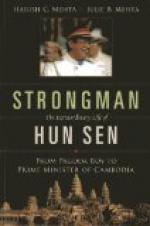Much could be said of the love of fire which has not yet surrendered all of its charm for even the most unromantic adult. The mystic thrill that went through the unspoiled nerves of pre-historic man and filled his mind with awe is with us still. The boy above all others yields to its spell. Further, by means of a fire he becomes, almost without effort, a wonderworking cause, a manipulator of nature, a miracle worker. Hence the vacant lots are often lighted up; barrels, boxes, and fences disappear; and one almost believes that part of the charm of smoking is in the very making of the smoke and seeing it unwind into greater mystery as did incense from thousands of altars in the long-ago.
This elemental desire to be a cause and to advertise by visible, audible, and often painful proofs the fact of one’s presence in the world is also basal. It is the compliment which noisy childhood and industrious boyhood insistently demand from the world about. Even the infant revels in this testimony, preferring crude and noisy playthings of proportion to the innocent nerve-sparing devices which the adult tries to foist upon him. The coal scuttle is made to proclaim causal relation between the self in effort and the not-self in response more satisfactorily than the rag doll; and the manifest glee over the contortions of the playful father whose hand is slapped is not innate cruelty but the delight of successful experiment in causation.
So of the noise and bluster, the building and destruction, the teasing and torture so often perpetrated by the boy. He is saying that he is here and must be reckoned with, and he wishes to make his presence as significant as possible. If home, school, and community conditions are such as to give healthful direction to both his constructive and destructive experimentation, all is well, but if society cannot so provide he will still exploit his causal relation although it must be in violation of law and order. The result is delinquency, but even in this he glories. It often gives a more pungent and romantic testimony than could otherwise be secured. It is the flaring yellow advertisement of misdirected effectiveness. Probably there mingles with this impulse the love of adventure as developed in the chase. “Flipping cars,” tantalizing policemen, pilfering from fruit stands are frequently the degenerate, urban forms of the old quest of, and encounter with, the game of forest and jungle.
Then there is the lure of the water, which explains more than half his school truancy during the open season. It is a fine spring or summer day. The Wanderlust of his ancestry is upon the boy. The periodic migration for game or with the herds, the free range of wood and stream, or the excitement of the chase pulsates in his blood. Voices of the far past call to something native in him. The shimmer of the water just as they of old saw it, the joyous chance of taking game from its unseen depths,




